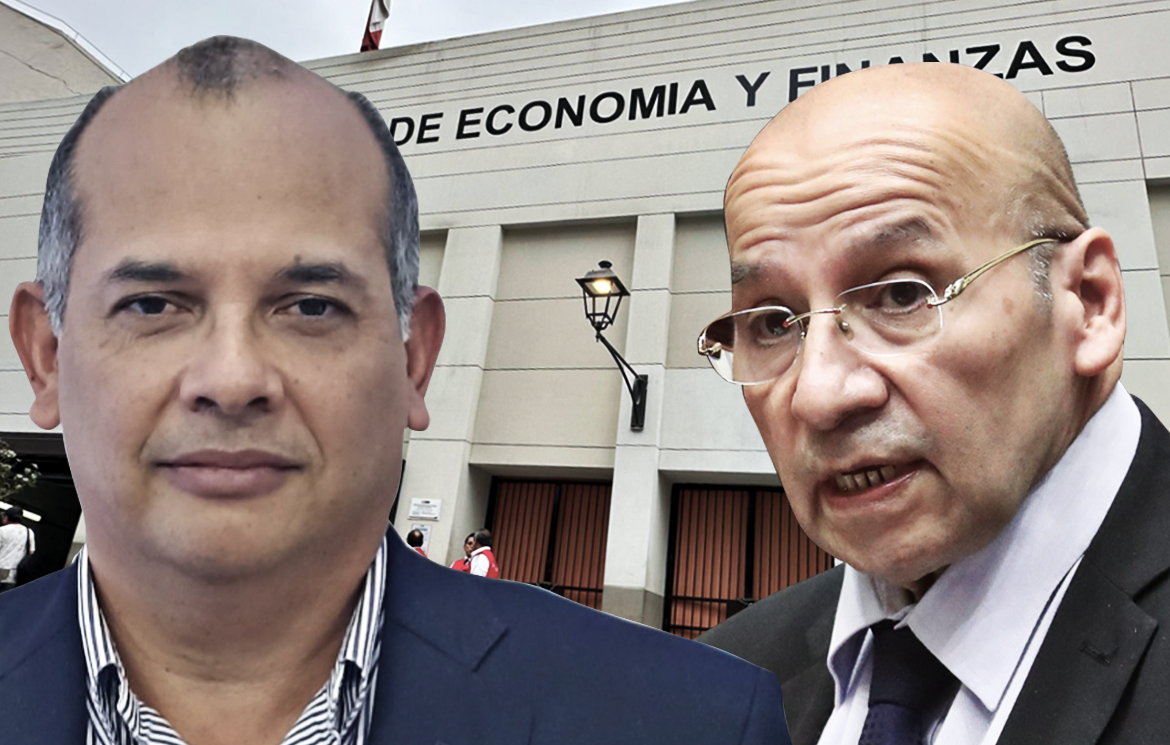
Governments have a limit on public spending (education, health, security, transportation, etc.), limited to the budget they manage each year. When this budget is exceeded because there is not enough income, or the need exceeds it, it is considered that there is a “deficit”.
This deficit is internationally accepted and is capped at discretion. For example, in Peru the deficit set by Law 31541 was 2.4% for 2023, meaning that 2.4% more could be spent than budgeted for that year without any problems. But it was set at 2.8%.
With a fiscal rule broken in 2023 and a base scenario of revenues at historic lows for the year 2024 (tax collections fell 12% last year), the Ministry of Economy and Finance (MEF) opted to request legislative powers to change the trajectory of Law 31541 towards 2028.
The MEF asked Congress to change the law so that the limits set for the fiscal deficit would go from 2% to 2.5% in 2024; from 1.5% to 2.2% in 2025; from 1% to 1.8% in 2026; from 1% to 1.4% in 2027; and only converge to 1% in 2028. More room to spend money that doesn’t exist.
But Congress decided on Monday to give it an additional hand: it was defined that the fiscal deficit for this year should not exceed that of 2023, that is, It could be broken by up to 2.8% from the original limit of 2%, even though the MEF had only requested 2.5%.
Furthermore, according to the substitute text approved by Congress, the goal of reaching 30% of public debt (what the country has to borrow because it does not have enough money) of GDP by 2030 will not be met. Now, it will have to reach that goal only in 2035.
Fiscal deficit of 2.8% for 2024: More room for borrowing?
Former Minister of Economy, Luis Miguel Castilerecalls that Peru’s fiscal deficit, at this time, reaches 3.9%, according to figures from the BCRP. For this reason, it finds it very difficult for it to converge to 2.8% by the end of 2024, but sees this “sincerity” as positive.
For the director of Videnza Consultores, the MEF is “kicking the fiscal consolidation process to the next government”, given that convergence to 1% will not be achieved under this Government. It should be noted that all the spotlights point to this year closing at around 3%.
“Spending is growing much more strongly than anticipated, due to initiatives by both the Executive and Congress. The sources of revenue are being undermined by a series of tax exemptions and preferential treatment, further eroding public finances. 2.8% may be too low,” says Castilla.
Castilla explains that, although there is a seasonal factor on the income side in this first half of the year, public spending also tends to rise in the second half. Given this, the country would have no choice but to go into debt to cover the fiscal gap left to care for the population.
The former Minister of Economy and university professor, Kurt Burneois confident that 2.8% will be reached this year, but recommends a meeting between Minister José Arista and the Fiscal Council to learn about the convergence plans.
In any case, Burneo points out that there are critical variables in the last half of 2024, such as the recovery of income. If these fall, the fiscal adjustment (the public spending cuts established by the MEF to reach 2.8%) will be greater.
“Everything will depend on the state of public finances. This will be known soon, when the MEF updates its Multiannual Macroeconomic Framework (MMM), which goes hand in hand with the Budget, Balance and Indebtedness Bills for Fiscal Year 2024,” says the specialist.
Burneo, however, acknowledges that it is private investment, and not that derived from public investment, that drives the economy. In this respect, he faces many headwinds from spending initiatives that should not be available to parliamentarians, and the limited room for manoeuvre left to the Executive.
“The problem is that we have an empowered Congress that brings many surprises, and investors are not very happy with it. Laws are passed that can sometimes affect ongoing projects, and one of the fundamental elements for investing is trust,” he says.
Source: Larepublica
Alia is a professional author and journalist, working at 247 news agency. She writes on various topics from economy news to general interest pieces, providing readers with relevant and informative content. With years of experience, she brings a unique perspective and in-depth analysis to her work.











